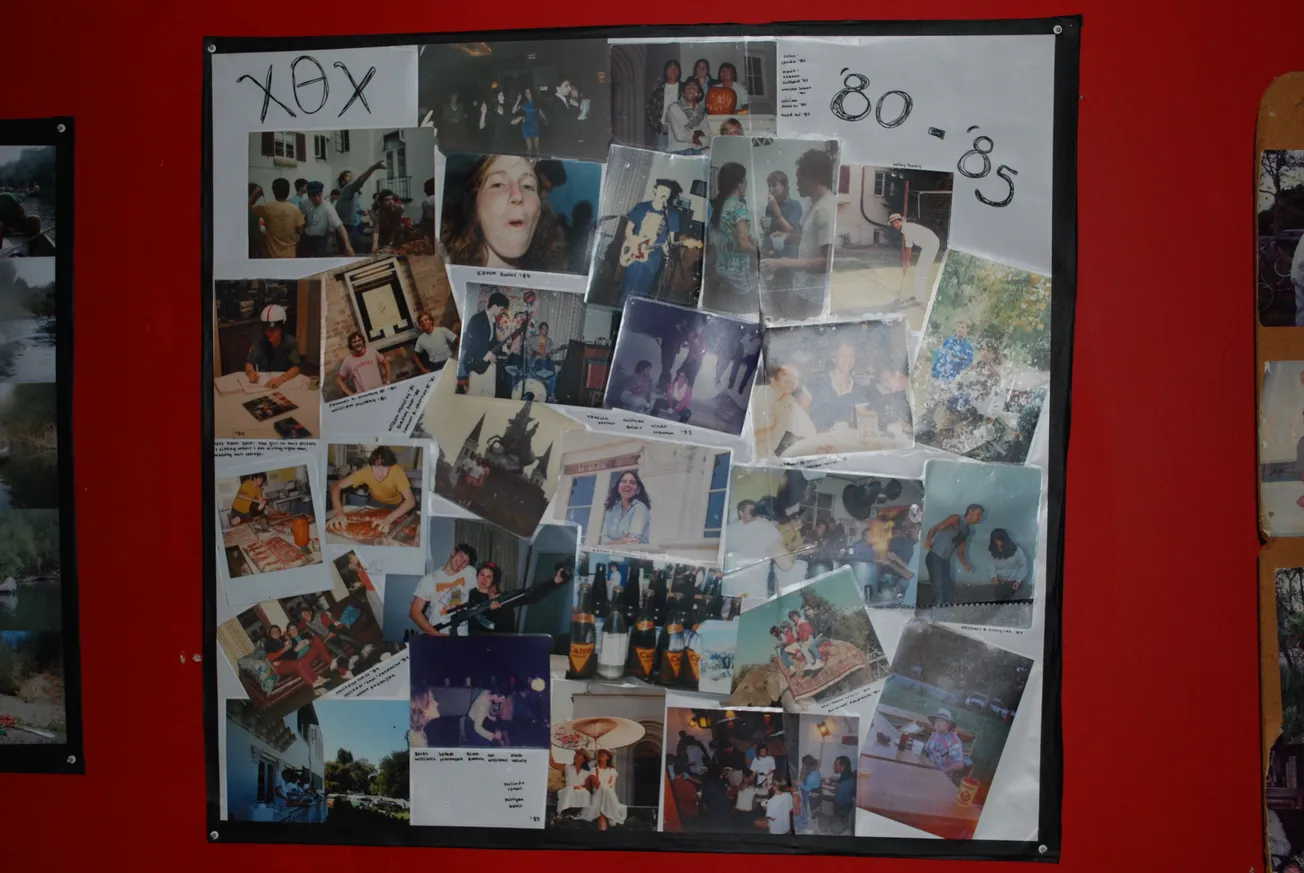Table of Contents
Chi Theta Chi gets its name in a manner that is entirely too reflective of the bubbly demeanor of its residents. After formally cutting ties with the Theta Chi national fraternity a bit over two decades ago, residents acknowledged that the house was now the ex-Theta Chi, and thus it came to be known by the Greek alphabet representation of its phonetic pronunciation. At Stanford, only two houses own their own building. One of them is Chi Theta Chi, and the other is Sigma Chi Fraternity.
The operations and ownership of Chi Theta Chi are the responsibility of residents, with supervision from their alumni board, which also handles a fund made up of residential fees collected from students living in the house throughout all four quarters of the year. The lease on the land was an agreement between the University and this alumni board. The University authority is well within the law in deciding not to renew Chi Theta Chi’s lease for the upcoming year. As Imogen Hinds, Senior Associate Director of Undergraduate Housing, informed residents in a letter last week: “The lease agreement with the alumni board provides a non-negotiable option for either party to discontinue the relationship for its own reasons by giving notice prior to March 1 in any given year.”
But residents and their parents, and alumni, of Chi Theta Chi are doing anything but preparing to transfer ownership to the Stanford’s Residential and Dining Enterprise (ResEd) come Spring Quarter. A petition released to the Stanford community received more than 1,700 signatures in favor of a renewal of the lease, within the first four days. In an invitation to an open-house for all those who signed the lease, the residents expressed their gratitude. “We were blown away by such an incredible and rapid show of support. It has since inspired us with the energy to persevere through this incredibly difficult time and to keep up the hard work,” read the letter, signed by the house management and staff.
Chi Theta Chi alumni and residents believe that although the University presented concerns regarding the smooth operations of the house, they were prepared to make active changes to meet the University’s standards. According to Chi Theta Chi, the alumni board and house management have always been responsive and efficient in meeting the needs of the community. Marshal Blundell, the house’s financial manager, told the Review, “In the last decade, we’ve spent a total of $1.3 million this way, constantly improving and maintaining our home’s physical plant.” At least one receipt from Raphael Construction, a builder based in Menlo Park, indicates that as of February 2012, Chi Theta Chi had bought almost 1 million dollars worth of construction services from them. This includes a $270,000 accessibility ramp, and $150,000 for seismic activity adjustments.
Chi Theta Chi residents are also worried that University supervision would cut down the number of staff employed by the house. “Having 12 staff members for a house of 35 residents allows us to make informed decisions with a strong grasp of what the community wants without having to go through the trouble of consensus or numerous house meetings. Under the University, our staff numbers would be cut most likely in half, and that would create a strange and unwelcome dynamic in our home of a small few making decisions for the vast majority, which could lead to further problems with our community dynamic,” said Grousbeck.
Besides more specific complaints, students and alumni are also concerned that the essence of Chi Theta Chi lies with its autonomy, which is in jeopardy now that the University plans to oversee operations. Although the authorities, in an email to the house and alumni, mentioned that they would accommodate as much autonomy as possible, this is not enough for all those with interests in the house. “Space informs presence, presence of mind and body. A space that shows that it has been well-loved creates a community of love,” remarked Peter McDonald, a former resident.
Amongst the University’s complaints is the fact that Chi Theta Chi has been using the Theta Chi fraternity’s tax code. Since the house and alumni network have no affiliation with the fraternity, this is a violation of the California tax code. While residents like Grousbeck acknowledge that this is definitely something that should be rectified, she also notes that it is an issue that most residents were not aware of. They feel that revoking the lease without informing all residents of this situation does not give the community a fair chance to pressure their own management and internally resolve the issue.
As of now, Chi Theta Chi residents have been informed that the lease will not be renewed, and that the University will evacuate summer residents in order to renovate the house. Chi Theta Chi alumni and residents have put up a fight thus far, but we have yet to see how this saga will wind down.





